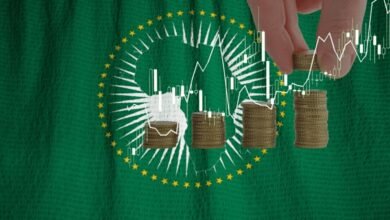
French President Emmanuel Macron – visited Tunisia as part of a state visit under the banner of economic development.
Mohamed Abdellaoui in Tunis
Emmanuel Macron’s recent state visit to Tunisia last week resulted in the signing of eight cooperation agreements.
They relate to the fight against terrorism as well as a common initiative to support young Tunisian entrepreneurs. These agreements also provide for the creation of a Franco-Tunisian university for Africa and the Mediterranean (IFTAM). Another subject was discussed: that of the Tunisian debt. Tunis has obtained a readjustment of the debt. Its amount is estimated at 30 million euros, according to the Tunisian authorities. Finally, Paris and Tunis have announced the signing of a convention to finance the of Tunisian public institutions’ governance reform.
Beautiful promises
Speaking at the closing of the 1st Tunisia-France Economic Forum on the theme: « Succeed together today and tomorrow », Emmanuel Macron said: « We can set up, from this year, an emergency plan of 50 million euros, to accelerate entrepreneurial projects », and he adds: » to allow young people to have access to the French market and benefit from a financial support« , he concluded.
According to Emmanuel Macron, colonization is an a new configuration of the bilateral partnership. « What is happening here is essential not only for Tunisia but also for the whole region, » he said, emphasizing the development of the Francophony and entrepreneurship.
In the same vein, the French president called on Tunisians to develop their own ideas for projects to be supported by France later. These initiatives are expected to enhance economic relations between the two countries.
The global value of trade between the two countries reached 18 billion dinars in 2017, nearly 6 billion euros according to the Tunisian Ministry of Commerce. Tunisian exports to France increased by 12.9%. While Tunisian imports from France increased by 16.4% at the end of the same year compared to 2016, according to the Tunisian Ministry of Commerce.
The country of Charles de Gaulle is also the largest investor, excluding the energy sector, both in terms of the number of companies created and the amount of investments made. In addition, in 2017, 1403 French companies operating in Tunisia allowed the creation of more than 135,000 jobs, according to local authorities. These companies operate in sectors such as textiles, mechanical industries, agribusiness, plastics and tourism.
La valeur globale des échanges entre les deux pays a atteint 18 milliards de dinars en 2017, près de 6 milliards d’euros selon le ministère du commerce tunisien. Les exportations tunisiennes vers la France ont connu une hausse de 12,9%. Alors que les importations tunisiennes depuis l’Hexagone ont augmenté de 16,4% au terme de la même année par rapport à 2016, selon le ministère tunisien du commerce.
Le pays de Charles de Gaulle est également le premier investisseur, hors secteur énergétique, tant en nombre d’entreprises créées qu’en montant d’investissements réalisé. Par ailleurs, en 2017, 1403 entreprises françaises opérationnelles en Tunisie ont permis la création de plus de 135.000 emplois, d’après les autorités locales. Ces entreprises évoluent dans des secteurs comme le textile, les industries mécaniques, l’agro-alimentaire, la plasturgie ou encore le tourisme.
An economic partnership below expectations
Still, the nature of French investments in Tunisia lacks to boost the Tunisian economy. In addition, several voices were raised during the visit of the French Head of State to the country, requesting qualitative investments from the former metropolis for economic recovery in the country of the Jasmine Revolution.
For these unsatisfied Tunisians, the rules governing the economic partnership between Tunisia and France highlight above all « the inequity and the prevalence of French interests », so that strategic and legislative frameworks relegate to the second degree, in the best of cases, the interests of Tunisia. Some Tunisian economists believe that these business executives do not pay enough attention to the specific needs of the population.
They also denounce French economic predominance in the most prolific production sectors.






